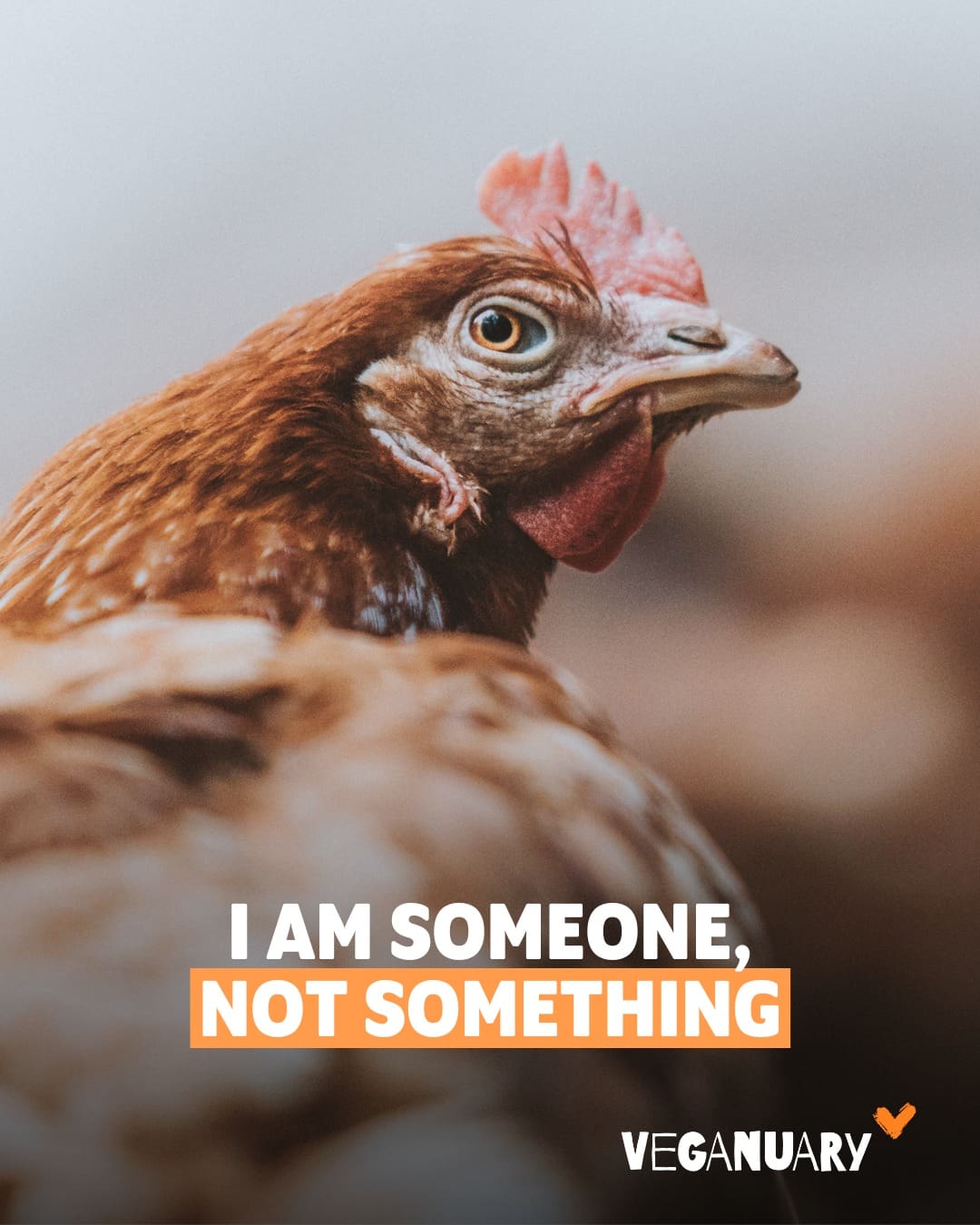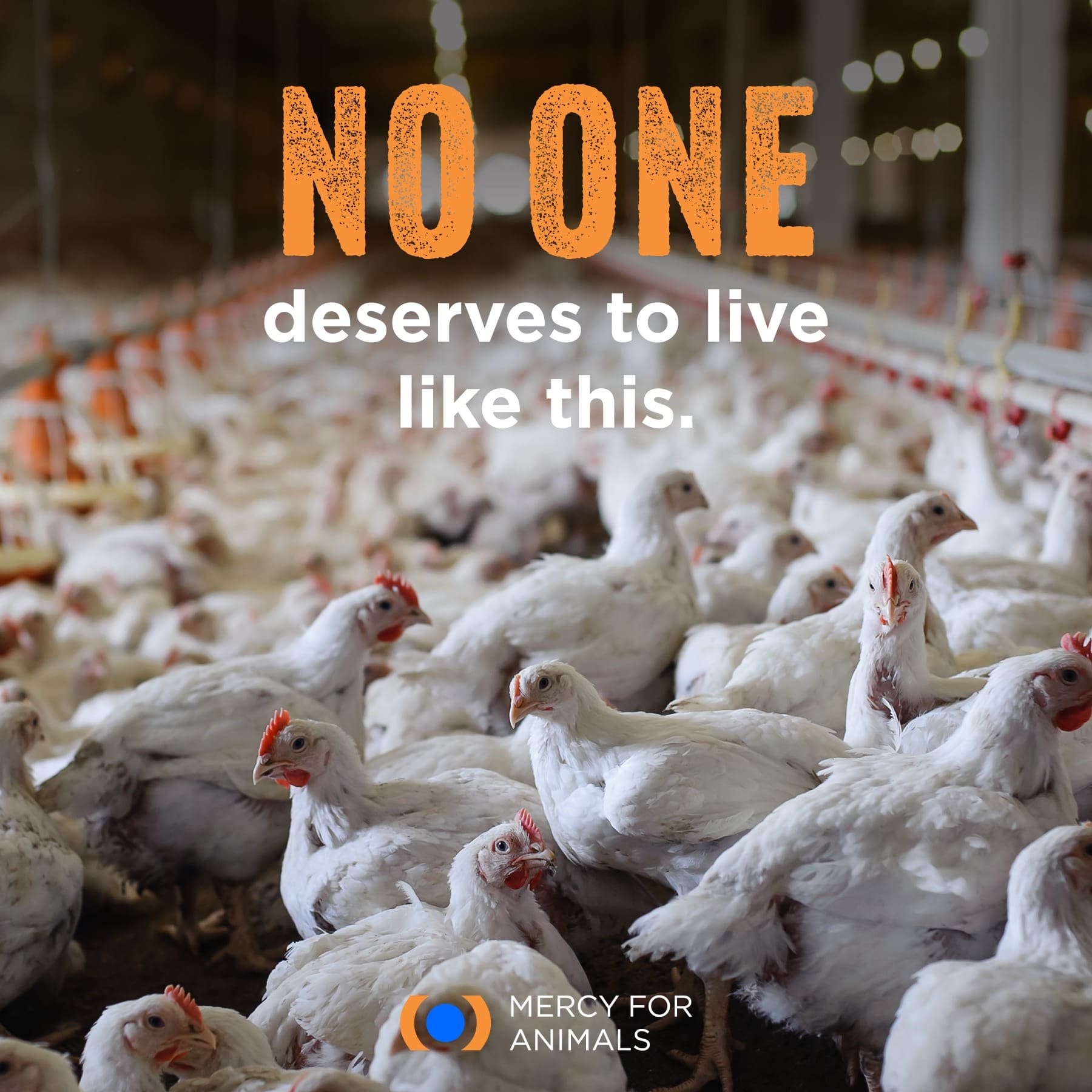ແນະນຳ
ພູມສັນຖານດ້ານກະສິກໍາທີ່ທັນສະໄຫມແມ່ນຖືກຄອບງໍາໂດຍວິທີການອຸດສະຫະກໍາທີ່ໃຫ້ຄວາມສໍາຄັນແລະຜົນກໍາໄລໃນໄລຍະທີ່ມີຄວາມສຸກຂອງສັດ. ບໍ່ມີບ່ອນໃດທີ່ເຫັນໄດ້ຊັດເຈນກວ່າອຸດສາຫະກໍາສັດປີກ, ເຊິ່ງນົກຫຼາຍລ້ານໂຕທີ່ລ້ຽງຢູ່ໃນກະສິກອນໂຮງງານໃນແຕ່ລະປີ. ໃນສິ່ງອໍານວຍຄວາມສະດວກ, ໄກ່ແລະຊະນິດສັດປີກອື່ນໆແມ່ນຂຶ້ນກັບສະພາບທີ່ຄັບແຄບ, ສະພາບແວດລ້ອມທີ່ບໍ່ເປັນທໍາມະຊາດ, ແລະຂັ້ນຕອນທີ່ເຈັບປວດ, ນໍາໄປສູ່ບັນຫາທາງດ້ານຮ່າງກາຍແລະທາງຈິດໃຈ. ບົດຂຽນນີ້ delves ເຂົ້າໄປໃນສະພາບຂອງສັດປີກໃນຟາມຂອງສັດລ້ຽງໃນໂຮງງານ, ໂດຍສຸມໃສ່ຜົນສະທ້ອນຂອງການກັກຂັງຂອງພວກເຂົາ, ແລະຄວາມຕ້ອງການອັນຮີບດ່ວນສໍາລັບການປະຕິຮູບ.

ຜົນສະທ້ອນຂອງການກັກຂັງ
ການກັກຂັງໃນຟາມໂຮງງານມີຜົນສະທ້ອນທີ່ເລິກເຊິ່ງສໍາລັບສະຫວັດດີການຂອງສັດປີກ, ເຮັດໃຫ້ໂລກພະຍາດທາງດ້ານຮ່າງກາຍແລະທາງຈິດໃຈ. ຫນຶ່ງໃນຜົນກະທົບທີ່ສຸດຂອງການກັກຂັງແມ່ນການຈໍາກັດການເຄື່ອນໄຫວແລະພື້ນທີ່. ຍົກຕົວຢ່າງ, ຍົກຕົວຢ່າງ, ມັກຈະຖືກກັກຂັງໃສ່ກະຕ່າທີ່ຄັບແຄບຫຼືບ່ອນຫຼົບຫນີ, ບ່ອນທີ່ພວກເຂົາຂາດຄວາມຈິງໃນການຍ່າງ, ການຍ່າງ, ແລະແຜ່ລາມປີກ.
ການຂາດອາວະກາດນີ້ບໍ່ພຽງແຕ່ເຮັດໃຫ້ສຸຂະພາບຮ່າງກາຍຂອງນົກເທົ່ານັ້ນແຕ່ຍັງເຮັດໃຫ້ຄວາມກົດດັນທາງສັງຄົມແລະການຮຸກຮານຢູ່ໃນຝູງ. ໃນສະພາບທີ່ມີນ້ໍານົມ, ໄກ່ອາດຈະມີສ່ວນຮ່ວມໃນການປະພຶດໃຈແລະການຂົ່ມເຫັງ, ນໍາໄປສູ່ການບາດເຈັບແລະລະດັບຄວາມກົດດັນທີ່ສູງຂື້ນ. ຍິ່ງໄປກວ່ານັ້ນ, ການສໍາຜັດກັບອາຈົມແລະຄວັນຢາ ammonia ໃນສະພາບແວດລ້ອມທີ່ຖືກກັກຂັງສາມາດເຮັດໃຫ້ເກີດບັນຫາດ້ານການຫາຍໃຈ, ແລະບັນຫາສຸຂະພາບອື່ນໆ.
ຍິ່ງໄປກວ່ານັ້ນ, ການຂາດການເສີມສ້າງສິ່ງແວດລ້ອມແລະການກະຕຸ້ນໃນຟາມຂອງໂຮງງານເຮັດໃຫ້ສັດປີກແລະຄວາມສໍາເລັດພຶດຕິກໍາ. ຖ້າບໍ່ມີໂອກາດສໍາລັບການອາບນ້ໍາ, ການອາບນໍ້າຂີ້ຝຸ່ນ, ນົກປະສົບກັບຄວາມເບື່ອຫນ່າຍແລະຄວາມອຸກອັ່ງ, ເຊິ່ງເປັນສັດປີກທີ່ຜິດປົກກະຕິແລະມະຫັດສະຈັນ.
ການກັກຂັງຍັງເຮັດໃຫ້ມີການຕອບສະຫນອງຕາມທໍາມະຊາດຂອງນົກ, ເຮັດໃຫ້ພວກມັນມີຄວາມອ່ອນໄຫວຕໍ່ກັບພະຍາດຕ່າງໆແລະການຕິດເຊື້ອ. ໃນສະພາບທີ່ມີຄວາມຮຸນແຮງຫຼາຍເກີນໄປແລະບໍ່ມີເຊື້ອໄຟ, ນໍາໄປສູ່ການລະບາດຂອງພະຍາດຕ່າງໆເຊັ່ນ: ໂຣກໄຂ້ຫວັດສັດປີກ, ແລະໂຣກປອດອັກເສບຕິດຕໍ່. ຄວາມກົດດັນຂອງການກັກຂັງຕື່ມອີກທີ່ກໍາລັງເຮັດໃຫ້ລະບົບພູມຕ້ານທານຂອງນົກອ່ອນລົງ, ເຮັດໃຫ້ພວກເຂົາມີຄວາມສ່ຽງຈາກການເຈັບເປັນແລະອັດຕາການຕາຍ.
ໂດຍລວມແລ້ວ, ຜົນສະທ້ອນຂອງການກັກຂັງໃນຟາມຂອງໂຮງງານຂະຫຍາຍອອກໄປເຫນືອຄວາມບໍ່ສະບາຍທາງຮ່າງກາຍທີ່ຈະລວມເອົາຄວາມກົດດັນທາງດ້ານຮ່າງກາຍ, ຄວາມຫຍຸ້ງຍາກທາງຈິດໃຈ, ແລະສຸຂະພາບທີ່ປະນີ. ການແກ້ໄຂບັນຫາເຫຼົ່ານີ້ຮຽກຮ້ອງໃຫ້ມີການປ່ຽນແປງໄປສູ່ລະບົບທີ່ພັກອາໄສຂອງມະນຸດທີ່ໃຫ້ຄວາມສໍາຄັນແກ່ຄວາມສະຫວັດດີຕັ້ງຂອງສັດປີກຂອງພວກເຂົາ. ໂດຍການສະຫນອງພື້ນທີ່ທີ່ພຽງພໍ, ການເພີ່ມຂື້ນຢ່າງສະດວກ, ແລະການພົວພັນທາງສັງຄົມ, ພວກເຮົາສາມາດຫຼຸດຜ່ອນຜົນກະທົບທາງລົບຂອງການກັກຂັງແລະປັບປຸງຄວາມຜາສຸກຂອງສັດປີກໃນການຕັ້ງຄ່າກະສິກໍາ.
ຂັ້ນຕອນການເຄື່ອນໄຫວແລະຂັ້ນຕອນທີ່ເຈັບປວດ
ຂັ້ນຕອນການປ່ຽນແປງແລະການເຈັບປວດແມ່ນການປະຕິບັດທົ່ວໄປໃນຟາມໂຮງງານ, ແນໃສ່ການຄຸ້ມຄອງຄວາມທ້າທາຍຂອງພຶດຕິກໍາທີ່ຫນ້າເບື່ອຫນ່າຍແລະຮຸກຮານໃນບັນດາສັດປີກ. ຫນຶ່ງໃນບັນດາຂັ້ນຕອນທີ່ມີຄວາມສ່ຽງຫຼາຍທີ່ສຸດແມ່ນການລ່າສັດ, ບ່ອນທີ່ບາງສ່ວນຂອງປາຍຫມາກຂອງນົກຖືກຍ້າຍອອກເພື່ອປ້ອງກັນການກັກຂັງແລະມະນຸດຊາດ. ຂັ້ນຕອນນີ້, ມັກຈະຖືກປະຕິບັດໂດຍບໍ່ມີອາການສລົບ, ເຮັດໃຫ້ເກີດຄວາມເຈັບປວດທີ່ຮຸນແຮງແລະເປັນນົກໄລຍະຍາວສໍາລັບນົກ.
ເຊັ່ນດຽວກັນ, ສັດປີກອາດຈະມີປີກຂອງພວກເຂົາຖືກຕັດເພື່ອປ້ອງກັນບໍ່ໃຫ້ພວກເຂົາບິນຫຼືຫລົບຫນີການກັກຂັງ. ຂັ້ນຕອນນີ້ກ່ຽວຂ້ອງກັບການຕັດຂົນສັດປະຖົມບິນ, ເຊິ່ງສາມາດເຮັດໃຫ້ເກີດຄວາມເຈັບປວດແລະຄວາມຫຍຸ້ງຍາກ. ທັງການກັກຂັງແລະປີກປີກທີ່ກັກຂັງນົກຂອງພຶດຕິກໍາທໍາມະຊາດແລະທໍາມະຊາດຂອງພວກເຂົາ, ເຮັດໃຫ້ເກີດຄວາມອຸກອັ່ງແລະສະຫວັດດີການ.
ຂັ້ນຕອນທີ່ເຈັບປວດອື່ນໆປະກອບມີການຕັດຕີນ, ບ່ອນທີ່ຄໍາແນະນໍາຂອງຕີນແມ່ນປ້ອງກັນບໍ່ໃຫ້ສັດປີກທີ່ຮຸກຮານ, ເຊິ່ງມີເຫດຜົນທີ່ມີຄວາມງາມຫຼືການປ້ອງກັນອາກາດຫນາວ. ການປະຕິບັດເຫຼົ່ານີ້ເຮັດໃຫ້ເກີດຄວາມເຈັບປວດແລະຄວາມທຸກທໍລະມານຢູ່ເທິງນົກ, ເນັ້ນຫນັກເຖິງ ຄວາມກັງວົນດ້ານຈັນຍາບັນທີ່ຢູ່ອ້ອມແອ້ມການປູກຝັງໂຮງງານຜະລິດຢູ່ອ້ອມແອ້ມການປູກຝັງຢູ່ອ້ອມແອ້ມການປູກຝັງອ້ອມ ຮອບ
ໃນຂະນະທີ່ຂັ້ນຕອນເຫຼົ່ານີ້ມີຈຸດປະສົງເພື່ອຫຼຸດຜ່ອນຜົນກະທົບທາງລົບຂອງການກັກຂັງແລະການຂູດຮີດໃນທີ່ສຸດ, ການຂູດຮີດໃນອຸດສາຫະກໍາສັດປີກ. ການແກ້ໄຂບັນຫາຂອງການປ່ຽນແປງແລະຂັ້ນຕອນທີ່ເຈັບປວດຮຽກຮ້ອງໃຫ້ມີການປ່ຽນແປງໄປສູ່ການປະຕິບັດການກະສິກໍາທີ່ເປັນມະນຸດແລະຄວາມຍືນຍົງກວ່າເກົ່າທີ່ໃຫ້ຄວາມອົດທົນຂອງສັດທີ່ມີກໍາໄລ.
ຄວາມຫຍຸ້ງຍາກທາງຈິດໃຈ
ນອກເຫນືອໄປຈາກຄວາມທຸກທໍລະມານທາງຮ່າງກາຍ, ສັດປີກໃນຟາມໂຮງງານປະສົບກັບຄວາມຫຍຸ້ງຍາກທາງຈິດໃຈທີ່ສໍາຄັນ. ຄວາມບໍ່ສາມາດມີສ່ວນຮ່ວມໃນການປະພຶດທີ່ເປັນທໍາມະຊາດແລະຄວາມກົດດັນທີ່ຄົງທີ່ເຊັ່ນ: ການກັກຂັງແລະການກັກຂັງ, ການຮຸກຮານ, ແລະການປ່ຽນແປງຕົນເອງ. ພຶດຕິກໍາເຫຼົ່ານີ້ບໍ່ພຽງແຕ່ໃຫ້ບໍລິການຄວາມທຸກທໍລະມານຂອງນົກເທົ່ານັ້ນແຕ່ຍັງປະກອບສ່ວນໃຫ້ເປັນວົງຈອນຄວາມກົດດັນແລະຄວາມຮຸນແຮງທີ່ໂຫດຮ້າຍຢູ່ໃນຝູງ. ຍິ່ງໄປກວ່ານັ້ນ, ການຂາດການກະຕຸ້ນທາງດ້ານຈິດໃຈແລະການປັບປຸງສິ່ງແວດລ້ອມສາມາດເຮັດໃຫ້ມີຄວາມເບື່ອຫນ່າຍແລະໂລກຊຶມເສົ້າ, ປະນີປະນອມຕື່ມອີກກັບສະຫວັດດີການຂອງນົກ.
ຄວາມຕ້ອງການອັນຮີບດ່ວນສໍາລັບການປະຕິຮູບ
ຫນ້າທໍາອິດແລະສໍາຄັນທີ່ສຸດ, ການປະຕິບັດໃນປະຈຸບັນໃນຟາມໂຮງງານໄດ້ລະເມີດຫຼັກການພື້ນຖານຂອງ Ahima, ຫຼືບໍ່ແມ່ນຄວາມຮຸນແຮງ, ເຊິ່ງເປັນຈຸດໃຈກາງຂອງການເປັນໄພພິບັດ. ສັດໄດ້ຍົກຂຶ້ນມາສໍາລັບອາຫານແມ່ນຂຶ້ນກັບຄວາມທຸກທໍລະມານທີ່ບໍ່ອາດຄິດໄດ້, ຕັ້ງແຕ່ຕອນທີ່ພວກເຂົາເກີດມາຈົນເຖິງວັນທີ່ພວກເຂົາຖືກຂ້າ. ການກັກຂັງ, ມີດຕັດປີກ, ແລະການເຄື່ອນໄຫວອື່ນໆແມ່ນຂັ້ນຕອນທີ່ເຈັບປວດທີ່ເຮັດໃຫ້ເກີດຄວາມເສຍຫາຍແລະຄວາມຫຍຸ້ງຍາກທີ່ບໍ່ຈໍາເປັນແລະເຮັດໃຫ້ພວກເຂົາມີກຽດແລະເປັນເອກະລາດ.
















































